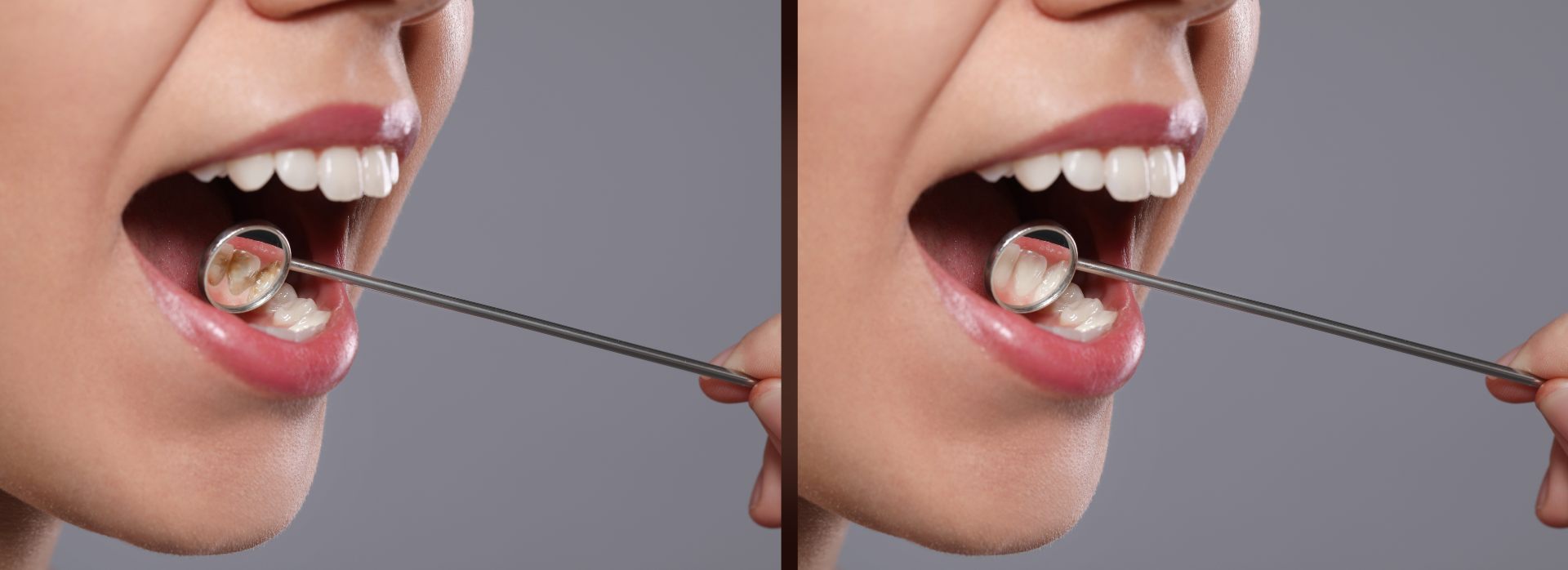Date
Routine dental cleanings are an essential part of maintaining good oral health, but did you know there are different levels of cleaning for your teeth and gums? In some cases, a regular cleaning by a dental hygienist isn’t enough. If bacteria penetrates below the gumline, your dentist may recommend a deep dental cleaning to stop the progression of gum disease and restore your gums to health.
What Is a Deep Cleaning?
A deep cleaning, also known as scaling and root planing, eliminates harmful plaque, tartar and bacteria below the gum line and deep to your tooth roots. Unlike preventive routine cleanings that are recommended twice a year, deep cleanings are used for situations where patients require a more advanced treatment.
Who Is a Good Candidate for Deep Cleaning?
For patients with gingivitis (the earliest stage of gum disease) or a more serious case of gum disease, a deep cleaning may be suggested to prevent tooth loss and stop further damage. When tartar and bacteria invade deep into the gum tissue, it can lead to severe recession of the gums, bone loss, loose teeth, severe infection and even loss of teeth. Deep cleanings performed by a dentist can remove all the infection from the tissue so that the gums can heal.
Since gum disease doesn’t always present with visible symptoms or pain, it can be difficult to know if you could benefit from a deep cleaning.
In addition to maintaining regular visits with your dentist, look for the following signs of gum disease:
- Gums that bleed easily
- Chronic bad breath or an unpleasant taste in your mouth
- Gums pulling away from the teeth
- Red, inflamed and tender gums
- Loose or sensitive permanent teeth
- Unusual, persistent tooth pain while chewing
The Procedure: What to Expect
During a deep teeth cleaning, your dentist or dental hygienist will use specialized tools to carefully remove plaque and tartar from the teeth and deep below the gum line, a process known as scaling. Once scaling is complete, your dentist will then begin root planning, which involves smoothing your teeth roots to help your gums reattach to your teeth. Scaling and root planing often take more than one visit to complete and may require a local anesthetic.
After your deep cleaning, you should take steps to prevent gum disease in the future. A simple step you can take is to practice good oral hygiene at home. Proper daily brushing and flossing can greatly reduce your risk of gum infections. Your dentist may recommend specific products (like CariFree and Waterpik) to improve your home care routine. Visiting your dentist for routine teeth cleanings and checkups every six months is also important. These cleanings can eliminate plaque and tartar before they have the chance to spread below the gum line to cause gum disease.
Learn More Today!
If you are showing signs of gum disease, it’s important to see a dentist as soon as possible. Call (703) 734-2750 to schedule a visit with McLean DDS today and find out if you’re a good candidate for a deep dental cleaning.


 703-734-2750
703-734-2750






